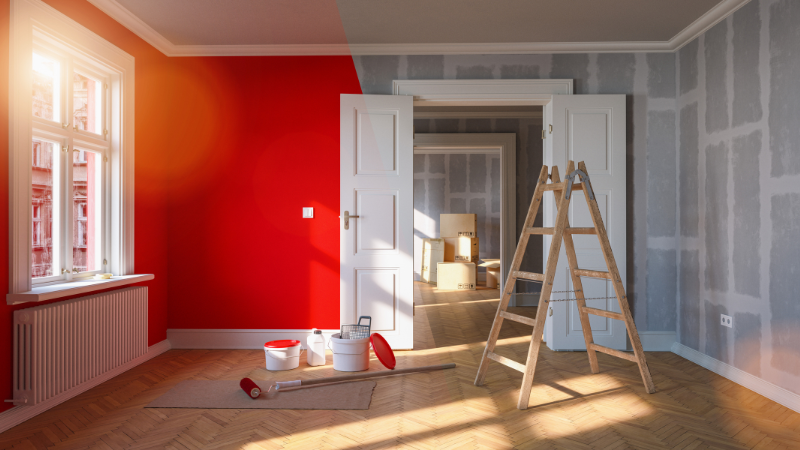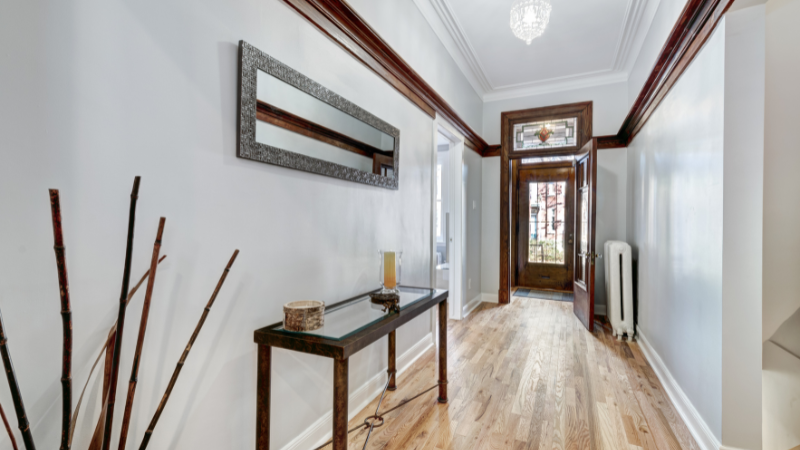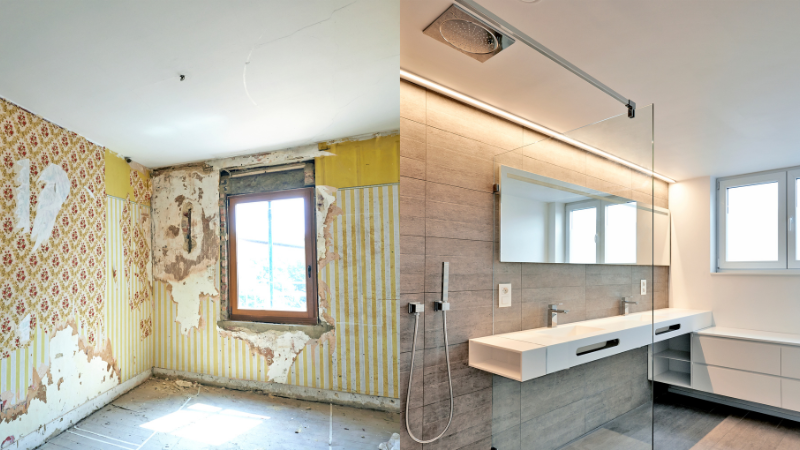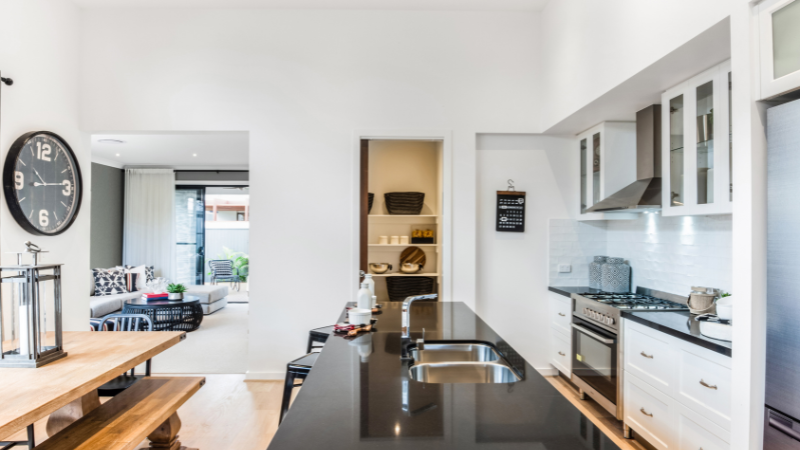An apartment renovation can be both an exciting and daunting endeavor. Whether you’re upgrading a single room or overhauling the entire space, understanding the timeline of the renovation process is crucial for effective planning. Many factors can influence how long a renovation takes, from the scope of the project to the availability of materials. In this blog post, we’ll explore these factors, provide typical timelines for various types of renovations, and offer practical tips for keeping your project on schedule.
Factors Influencing the Duration of an Apartment Renovation
1. Scope of Renovation
The scope of your renovation is one of the most significant factors affecting how long the project will take. A full apartment renovation, which includes everything from new flooring and paint to plumbing and electrical work, will naturally take longer than a partial renovation, such as updating a bathroom or kitchen.
- Full Apartment Renovation: A complete overhaul of an apartment, especially if it involves structural changes, could take anywhere from 3 to 6 months.
- Partial Renovation: Smaller projects, like updating the bathroom or kitchen, might take between 4 to 8 weeks.
2. Size of the Apartment
The size of the apartment also plays a critical role in determining the timeline. Larger apartments require more time for each phase of the renovation, from demolition to finishing touches. A studio apartment might only take a few weeks to renovate, while a multi-bedroom apartment could take several months.
- Studio Apartments: Typically, a full renovation might take 4 to 8 weeks.
- 1-2 Bedroom Apartments: These might require 2 to 4 months for a full renovation.
3. Permits and Approvals
Obtaining the necessary permits and approvals is another factor that can extend the renovation timeline. Depending on your location, securing permits for structural changes, electrical work, or plumbing can take anywhere from a few weeks to a few months. Additionally, dealing with building codes and regulations may require extra time for inspections and approvals.
- Tip: Start the permitting process as early as possible to avoid delays.

4. Hiring Professionals
The choice of professionals you hire can also impact how long your renovation takes. Working with experienced contractors, designers, and project managers can streamline the process, but their availability and scheduling can affect your timeline.
- DIY vs. Professional Contractors: While DIY projects may save money, they often take longer than those handled by professionals due to the learning curve and time constraints.
5. Budget Constraints
Your budget can directly influence the pace of your renovation. If funds are limited, you may need to complete the project in phases, which can extend the overall timeline. Additionally, budget constraints might lead to delays if you need to wait for funds to become available before proceeding with certain aspects of the renovation.
- Phased Renovations: Completing renovations in stages can spread costs over time but may prolong the total duration of the project.
6. Material Availability
The availability of materials, particularly custom or specialty items, can significantly impact your renovation timeline. Delays in shipping or production of materials can halt progress, leading to longer completion times.
- Tip: Plan for lead times on materials, especially if you’re ordering custom or imported items.
7. Unforeseen Delays
No matter how well you plan, unforeseen delays can occur. Hidden damages, such as mold or faulty wiring, may be discovered during demolition, requiring additional work and extending the renovation timeline. Weather conditions, particularly if outdoor work is involved, can also cause delays.
- Tip: Build a buffer into your timeline to account for potential delays.

Typical Timeline for Different Renovation Projects
1. Cosmetic Renovations
Cosmetic updates, such as painting, replacing flooring, or updating light fixtures, are generally the quickest type of renovation.
- Estimated Time: 1-3 weeks.
2. Kitchen Renovation
Kitchen renovations are more involved, often requiring updates to plumbing, electrical work, and cabinetry.
- Estimated Time: 4-8 weeks.
3. Bathroom Renovation
Like kitchens, bathrooms often require significant plumbing work, tile installation, and fixture updates.
- Estimated Time: 3-6 weeks.
4. Full Apartment Renovation
A full renovation, especially one that includes structural changes, is the most time-consuming.
- Estimated Time: 3-6 months.
Planning Your Renovation Timeline
1. Creating a Realistic Schedule

When planning your renovation, it’s essential to create a realistic schedule that takes all factors into account. Start by determining the scope of work and consulting with professionals to get accurate time estimates.
- Tip: Include buffer time in your schedule to accommodate any unforeseen delays.
2. Working with Contractors
Choosing the right contractors is key to keeping your renovation on track. Ensure clear communication with your contractors about your timeline and expectations. Regular check-ins can help identify potential issues early and keep the project moving forward.
- Tip: Make sure to discuss the availability of contractors and subcontractors to avoid scheduling conflicts.
3. Phased Renovation Approach
If you’re living in the apartment during the renovation, consider a phased approach. Tackling one area at a time can make the process more manageable and minimize disruption to your daily life.
- Tip: Prioritize the most critical areas first, such as the kitchen or bathroom.
Common Challenges and Solutions
1. Dealing with Unexpected Delays
Unexpected delays, such as discovering hidden damages or waiting on permits, can throw off your renovation timeline. The best way to handle these is to remain flexible and have a contingency plan in place.
- Tip: Regular communication with your contractor can help address issues quickly.

2. Staying Within Budget
Budget overruns are a common cause of delays. To avoid this, plan your budget carefully and include a contingency fund to cover unexpected costs.
- Tip: Get detailed estimates from your contractor and monitor expenses closely throughout the project.
3. Coordinating with Building Management
If you live in a building with an HOA or management company, coordinating with them is crucial. Some buildings have strict rules about construction hours, noise, and debris removal, which can impact your renovation timeline.
- Tip: Communicate with building management early to understand all restrictions and avoid delays.
FAQs
Q1: Can I live in my apartment during the renovation?
A: It depends on the scope of the renovation. Cosmetic updates might allow you to stay, but for larger projects like kitchen or bathroom remodels, finding temporary housing is often recommended.
Q2: How can I speed up my apartment renovation?
A: Hiring experienced professionals, ordering materials in advance, and ensuring all permits are obtained early can help keep the project on schedule.
Q3: What are the most time-consuming parts of a renovation?
A: Plumbing and electrical work, especially if it involves significant changes, tends to be the most time-consuming. Custom cabinetry and specialty materials can also cause delays.
Q4: Do I need to hire a project manager for my renovation?
A: For larger or more complex renovations, a project manager can be invaluable in keeping the project on schedule and within budget. They coordinate between contractors, suppliers, and building management.
Q5: How do I handle delays caused by material shortages?
A: Planning ahead is key. Work with your contractor to order materials early and consider alternative options if delays are expected. Having a backup plan can prevent long pauses in the renovation.
Q6: Why should I choose NSPIRE Experts for my renovation project?
A: NSPIRE Experts have a proven track record of managing renovation projects efficiently and effectively. Our team of experienced professionals ensures that your project stays on schedule, within budget, and meets all your expectations. With NSPIRE Experts, you can trust that your renovation will be completed to the highest standards.
Conclusion
Renovating an apartment is a significant undertaking that requires careful planning and management. By understanding the factors that influence renovation timelines and following the tips provided, you can ensure that your project stays on track. Whether you’re updating a single room or overhauling your entire apartment, NSPIRE Experts are here to help you every step of the way. With our expertise and commitment to excellence, your renovation will not only meet but exceed your expectations. Start planning today, and let NSPIRE Experts turn your vision into reality!
